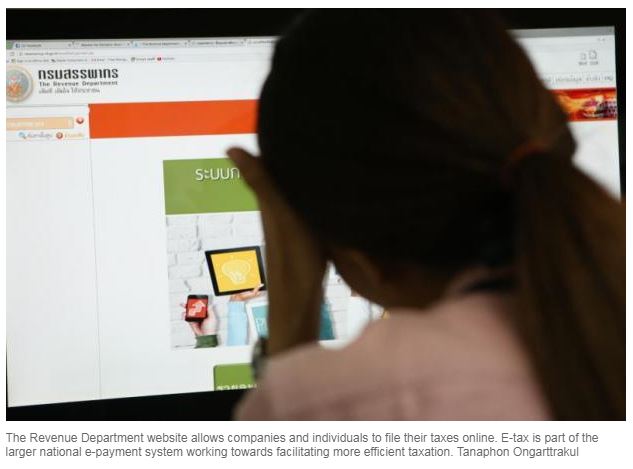Thailand: Revenue Department eyes AI upgrade
The Revenue Department has outlined its plan to adopt artificial intelligence (AI) in tax management to transform the tax- collecting agency into a fully digital organisation and improve efficiency.
The department plans to input withholding tax, individual and corporate taxpayer information into its internal database this year to allow data analysis, the first step in its digital transformation, said director-general Ekniti Nitithanprapas.
Pooling information with outside organisations such as electricity and tap water consumption of individuals and companies as well as property tax payment will be the next step, he said. The department can adopt AI technology to manage its tax collection activities after both steps are completed.
Adoption of new technologies like big data and pursuing digitisation of the tax collection system are priorities at the department, said Mr Ekniti. He said data analytics will be used to forecast income of operators, track tax collection and examination, while the system can reduce the time necessary for tax examination.
At present, 10 million individual taxpayers submit income tax filings and 3 million of them request tax returns. But Thailand has a combined workforce of 30 million and data analytics will be used to investigate the difference, said Mr Ekniti.
The Revenue Department, the country’s largest tax-collecting unit, accounts for as much as 75% of the government’s net income.
The department has missed its tax collection target in recent years, falling short by 70 billion baht last fiscal year.
During the October-April period, the department missed its target by 6.55 billion baht or 0.7%, tallying 899 billion, largely because of lower than expected revenue from VAT and personal income tax.
The department has set a collection target of 1.93 trillion baht for fiscal 2018.
He said the new technologies can separate good taxpayers from those looking to evade their tax bills, as they can track if tap water and power consumption line up with expenses submitted to the Revenue Department, for example.
Shortly before Mr Ekniti was promoted to head up the Revenue Department, the State Enterprise Policy Office (Sepo), under his guidance, pooled information from all specialised financial institutions and used data analytics to decipher consumer behaviour and enable better access to financial sources for small and medium-sized enterprises (SMEs).
In the initial stage, Sepo linked information about tap water and electricity consumption to big data analytics to help the state-owned SME Bank better assess risks as well as make faster loan approval decisions.
Source: https://www.bangkokpost.com/business/finance/1500082/revenue-department-eyes-ai-upgrade


 Thailand
Thailand




